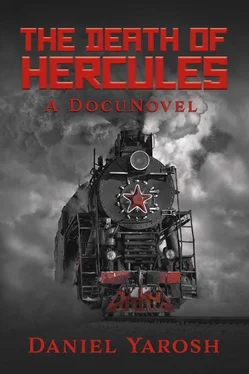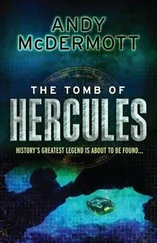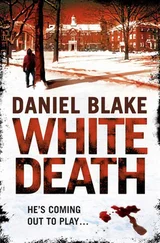“You did?” Zalmund was astonished that Deena would speak so naughtily.
“She was pleased with me. She thinks you are a thoroughly modern man.” Deena lowered her head and smiled down at her lap. This did not sit altogether easily with him. On the one hand, it is always good to have the approval of a Revolutionary Council member. On the other hand, it sounded emasculating, as if the women had tamed and domesticated him.
“This wasn’t what your mother taught you,” he said. He meant it to be joking, but it came out as an accusation.
“I’m not much of what my mother wanted, you know,” she said softly but directly to him.
He rose and went to her, wrapping his arms around her shoulders. “I know, I know, my putshka .” He gave her a hug and a soft kiss on the cheek. “There wasn’t much there for you, my love. You know they would not let you be happy, and not with me.”
She looked up at him, searching his eyes. Was she to be happy now? her eyes asked. She admired him, adored him, and had left her family, her people, her village to be with him. Now, the things she had learned had changed her. She could not go back, even if they would take her. “No,” she sighed. She leaned her head on his forearm and kissed his wrist. “We’ve done it, now.”
**********
In the summer of 1918 civil war swept the countryside. Peasants, who had toiled in the fields in the spring to plant wheat, now hid their harvested crop. The Bolshevik bureaucrats, with horn-rimmed glasses, goatees and clean fingernails, searched and seized their grain on behalf of the People and paid them in promissory notes that were worthless.
On a balmy day in late June, Zalmund drove such a political officer named Boris Zubadin on a long drive to Balashov, a major farming village in the Saratov region southeast of Moscow. Two cars followed with workers from the Prokhorov Cotton Mill and a Polish security detail, with Tad and Lenish at the wheels. The three of them, Tad, Lenish and Zalmund, had joked the night before in front of the women about their trip to the country. Miro was a bit jealous he was not assigned. While they drank, they talked of the trees near the Volga River that flowed in the countryside, and how it now all belonged to the people. The words were easy, the thoughts abstract, and the night disintegrated into friendship and lovemaking.
But now on the ride the cars were silent. Zalmund focused on the road and did not look at the trees or the rivers. He tried to engage Zubadin in conversation. What was his position in the party?, who did he see?, how did he rise to his position? Zubadin was aloof; he offered nothing and spoke very little.
After driving all night to just outside of the city, the delegation pulled up early in the morning to the town church, a copper domed hulk before a large courtyard. The Bolsheviks entered the Balashov central Orthodox church and soon marched the town priest down the front steps at gunpoint and into the yard. He was young, with a worn but freshly pressed black cloak, upon which he wore a wooden cross held by a wooden chain, all painted in a gold-tinged yellow. His long but thin beard blew over his shoulder in the cool morning breeze. Zalmund waited in the car while a small crowd who had seen their entrance now stood at the edge of the church, conspicuously eavesdropping. In neat rows behind them were forty new graves of children and young adults who had died in the Spring from influenza.
At first Zalmund was proud of driving a car into a village where horses were more common and bringing the Revolution to the heartland of Russia. But he knew his group was not expected or welcome, and that he was a doctor delivering the medicine they did not want to taste. He felt detached from the townspeople. There were no Jews in Balashov, and they were not allowed to own land in this part of Russia. In all likelihood the locals did not like Jews very much. He had a sense of justice tugging at his heart. Was this how the Cossacks felt when they looked down on a Jewish shtetl ?
Zubadin demanded on the authority of Lenin and Aleksandr Tsiurupa of the Dictatorship of Food Supply the names of the kulaks with the three largest properties in the Balashov district, and where their properties lay. The priest, who assumed that Zubadin already had this information, complied. He spoke in conciliatory tones. His manner said that his Christianity would outlive the Revolution. He placated the Bolsheviks acting as the representative of the souls of the village. While Zubadin remained behind, Zalmund drove a crew of Poles to one of the kulaks, while the others covered the remaining Kulak homes.
The Dubetsky farmhouse was aging, with stress cracks flaring from the wood frames of the windows through the yellowed plaster walls. The thatched roof was frayed. Zalmund stopped the car in a cloud of dust before the front door, and the two men from his detail bolted from the back seat. The family was peeking from behind the curtains of the bedroom window. One of the Poles demanded that Ivan Dubetsky immediately accompany him to town to meet with the priest. After some commotion behind the curtains, Dubetsky sheepishly emerged from the house, trying to carry a bravado in his step.
“Stay inside”, he called back over his shoulder, “I’ll be right back”. He got in the car with only Zalmund; the other two unloaded a suitcase from the truck and stayed behind.
Dubetsky was agitated. “What are they doing back there?”
Zalmund replied, “They are acting as security for your home, comrade, until you return”, as he had been instructed, and he returned to town.
Back at the square, they all waited: the priest, Zubadin, Dubetsky, and Zalmund, until the others returned. Zubadin stood aside the priest and before the three kulaks, and the security detail behind them. Zalmund had an odd sense of anticipation and he wanted to stop time. He wished he was elsewhere, but he couldn’t look away. Was he responsible in some way? No, he was a witness to history; he just drove the car.
“Moscow needs grain. By the order of the Revolutionary Commissariat for Food Supply, you must give it to us. The Revolution will pay the price set by the Soviet authority. You must supply us with the grain reserves you have hidden,” Zubadin bellowed.
The kulaks were nervous, and they glanced at each other in fear, although Zubadin saw conspiracy. “We have no hidden grain. We have sold it all to the Commissariat,” one kulak replied.
In one firm motion Zubadin drew his pistol from his side, along the back of the priest and pointed the barrel up at the base of his skull. With a sharp crack, the priest’s scalp lifted from the top of his head and red bits flew out from beneath his curly black hair. His body crumpled beside Zubadin.
The small crowd that had gathered in groups on the edge of the yard gasped as one. The security detail raised their rifles with a warning motion. The faces of the kulaks turned stone white. Zalmund shifted from one foot to the other but was otherwise unengaged.
“I ask again in the name of the Russian people. Release your grain.”
Dubetsky stammered, “My dear comrade, is it? We are only poor farmers; we sell what we have to clothe our families. If I…”
He had no chance to finish. Zubadin raised the pistol and fired into his face. At that signal the security detail unleashed a volley and the three kulaks fell in the church courtyard, draining blood into the dry summer dirt.
Zubadin raised his eyes from the corpses to the townspeople around the square. “Trucks will be at this spot tomorrow. You will load them with one thousand kilos of wheat for the workers and your comrades who are fighting for you and the Revolution while you sleep warm in your beds. If there is no grain, the penalty then will be ten times what you see here today.”
Читать дальше












